#wrestling text post
Text
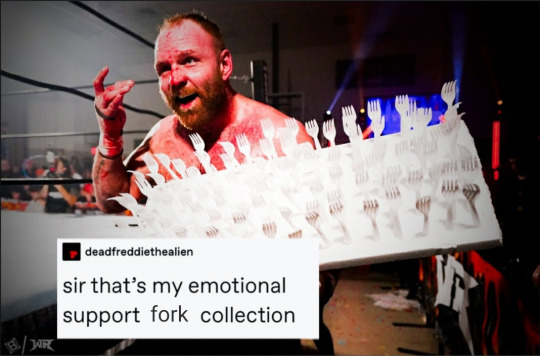






#jon moxley#wheeler yuta#blackpool combat club#bcc#sami zayn#jey uso#drew mcintyre#cm punk#darby allin#mjf#maxwell jacob friedman#better than you and you know it#ricky starks#indie wrestling#aew#wwe#pro wrestling#wrestling#wrestling text post#meme
198 notes
·
View notes
Text
More AEW text memes






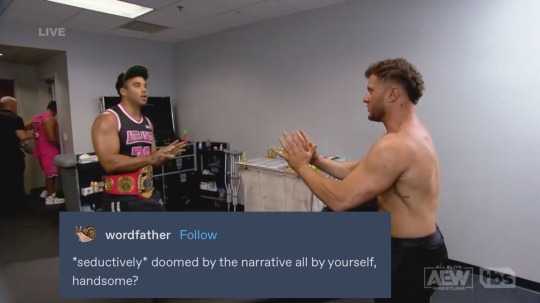



#aew#eddie kingston#hangman adam page#kazuchika okada#house of black#hob#bcg#jay white#kyle o'reilly#mjf#max caster#claudio castagnoli#wrestling text post#text post meme#the young bucks#matt jackson#nick jackson#nyla rose#hook#hook aew
144 notes
·
View notes
Text



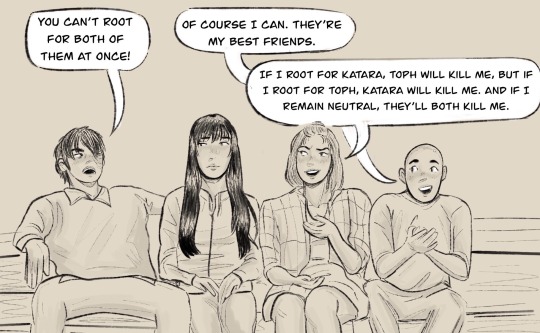


wrassling club
#id in alt text#avatar the last airbender#atla#katara#toph#zuko#mai#suki#aang#ty lee#sokka#katara&toph#sokka&tylee#art#mart#modern au#this is a rly old comic. idk why i kept forgetting to post it#katara and toph wrestling club is very important to me tho#sokka and ty lee go club is also very important#i picked go as the modern version of pai sho bc it was my best friends favorite game in high school#and she even started our schools go club#and she's also quite sokkacoded (by which i mean an insane eccentric massive nerd)#also. wrestling poses are fun to draw.......#:-)
616 notes
·
View notes
Text



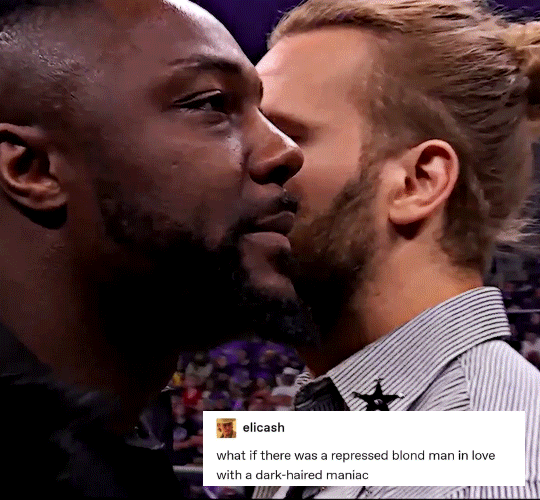

Swerve & Hangman + incorrect quotes [2/?]
#hangman adam page#hangman page#adam page#swerve strickland#strickpage#hangswerve#all elite wrestling#aew#wrestling#incorrect quotes#humor#text post#wrestlingedit#aewedit#it's missing them hours#so glad you all liked the first one so I decided to make another one :))
357 notes
·
View notes
Text


Max don’t spill his secrets like that
#harringrove#he’s pretending to lose in a wrestle match to have steve sit on top of him#he gets so smug too#billy hargrove#steve harrington#billy x steve#max mayfield#billy hargrove x steve harrington#harringroveera#incorrect harringrove quotes#steve & max#billy & max#harringrove textpost#harringrove meme#incorrect billy hargrove quotes#steve x billy#steve harrington x billy hargrove#harringrove edit#harringrove + text posts#harringrove memes#steve harrington meme#incorrect steve harrington#billy hargrove meme#billy hargrove text post
401 notes
·
View notes
Text
being single in your late 20s & 30s is so fucking wild bc on one hand it's fun and flirty and you skip a lot of the bullshit because you know what you're looking for and you know how to spot a red flag from a mile away and you've learned to set boundaries and communicate your own and be upfront about your needs and most of the time they've learned it too - and if they haven't, you can tell after the second date that they haven't been to therapy
and every time you feel lonely and dried up and an ugly husk there's a whole community of other single people out there who are just as unhinged and want to hang out with you because they just need a plus-one like you do and you get introduced to like. people in their 60's and 70's and 80's who are all like - nope, single life is my choice and i love it and you feel warm and seen and like okay, it's not the end of the world if i'm not seeing anybody. and yeah it's hard and sometimes exhausting but part of getting better is that you do make like so many friends and do so much wild shit because you made a promise to yourself that you'll actually get out there and try shit and actually work on your hobbies and skills and friendships because to be honest in relationships you wouldn't push yourself this hard and it's actually been super rewarding because it came from you and from what you wanted
and yes of course the apps such and dating in general can suck but after one of the bad dates you go back to your apartment and call up those friends you made and make jokes about what the other person said and it rolls right off your back and you have plans for self-care in the morning. you prioritize yourself and your happiness and you really actually don't mind it, a lot of the time, unless it's like at a wedding and they're doing one of those couples-related things. most of the time it's not even a problem except when you can tell people pity you for it and you're like - i'm actually fine, babe, even without a partner i am still, like a person and yes of course it would be nice to have a partner but you have established yourself as a person and as an adult in a way that feels really hard-won and well-earned and you're protective of that and of the life you're living and honestly you're pretty happy, all things considered
and at the same time you do have to tell your father that you are single on purpose right now and that, yes, believe it or not, they're letting women be single past the age of 30 these days without burning us at the stake (can you imagine!) and you have to kind of sit pretty while people make jokes about how you're losing your marriageability and you're like, a little too old for the bars and the clubs and whatever but you do still want to go out dancing and it's like. the other day you went to a board game party and had the time of your life and then your mom calls you and says she's worried because what if you never find the one, shouldn't you be spending more time looking? and you're like - trying to balance this place where you're actually, like, perfectly okay? except you hear this thing over and over and over - oh no. that's so sad. i hope you find your lover. and you weren't really upset about it until someone suggested that you're running out of time and until someone said that it's so miserable that you live without someone to kiss and you're like why can't anyone believe that i'm genuinely happy. like. joy. like. bliss.
and then they look at you and they look at their partner and the look passes between them that says - poor thing. you're just lying to yourself about this.
#writeblr#warm up#i sat down to write something that was literally 3 sentences long oops#the alternative text post was just -#sitting my 60 yr old father down and telling him i'm single on purpose and that they're letting women actually live without a husband#(and then a picture of samson wrestling the lion)#> would have been funnier#> unfortunately turns out i have feelings
1K notes
·
View notes
Text





Alternate universe Pulp Fiction
#kris statlander#willow nightingale#wrestling#edits#that is literally the text kris put on her instagram post
161 notes
·
View notes
Text
Anyways the one thing that made that chibi tales episode my fave was the implication that if the trio was allowed to keep their powers, they would totally be using them for the dumbest daily life shit
#text post#amphibia#chibi tiny tales#chibiverse#marcy is casually playing board games with a d20 that exploded space#sasha is winning arm wrestling#anne is flying around to impress girls
81 notes
·
View notes
Text
Akihiko: Tell Ken about the birds and the bees.
Makoto: They're disappearing at an alarming rate.
#thinking of that one text post about wrestling#ily op of that btw#chef kisses#incorrect persona 3#persona 3#p3#persona 3 reload#akihiko sanada#makoto yuki#minato arisato#ken amada#idk the source help me
56 notes
·
View notes
Text





#cody rhodes#hook#730 hook#aew hook#jack perry#jungle boy#Luchasaurus referenced#eddie kingston#jon moxley#rj city#hey ew#aew#wwe#pro wrestling#wrestling#wrestling text post#meme
211 notes
·
View notes
Text
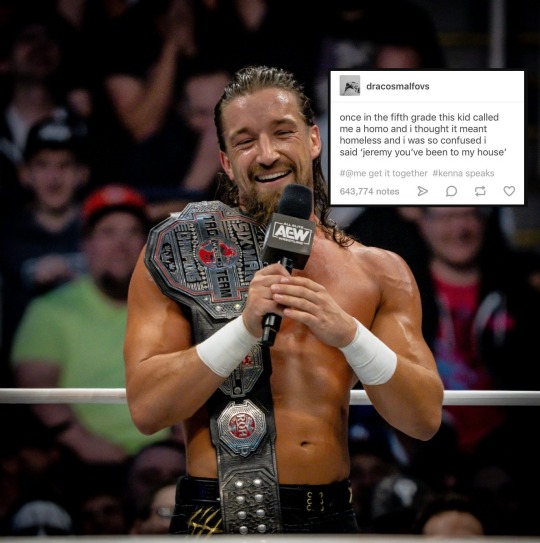


Leftovers from previous post
26 notes
·
View notes
Text







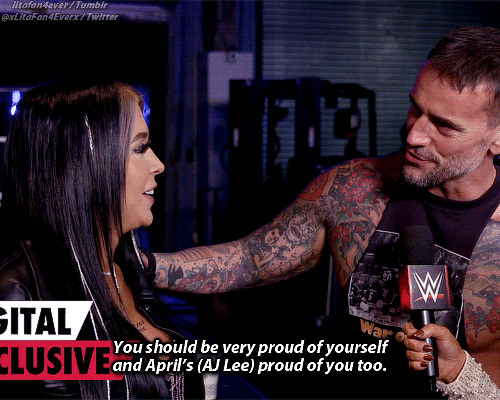



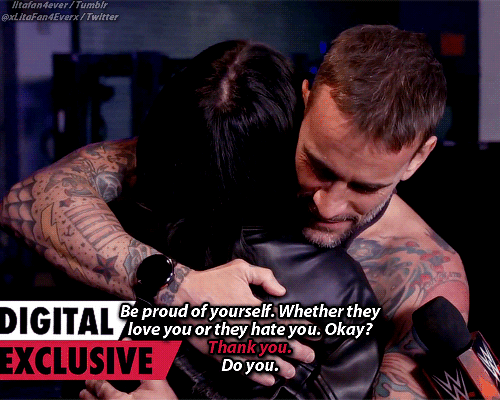



Cora Jade & CM Punk - NXT Deadline (December 9, 2023)
#I'm not a CM Punk fan but I'm so happy for Cora Jade here! :')#DAT AJ LEE MENTION THOUGH YEEEESSSS MENTION CORA'S WRESTLING MOTHER! :'''''')#Cora Jade#Elayna Black#Brianna Coda#CM Punk#Phil Brooks#wweedit#corajadeedit#cmpunkedit#WWE#WWE NXT#NXT Deadline#Gradient Text#Long Post#Again y'all I am a sick freak but this moment was beautiful and I wanted to include all of it! Forgive meh again pls! ;~~;#My Gifs
101 notes
·
View notes
Text
Wrestling with the Bible's war stories
Spend any solid amount of time with scripture and you'll run into something that perplexes, disturbs, or downright horrifies you. Many of us have walked away from the Bible or from Christianity in general, sometimes temporarily and sometimes permanently, after encountering these stories. So how do we face them, wrestle them, and seek God's presence in (or in spite of) them?
In her book Inspired: Slaying Giants, Walking on Water, and Loving the Bible Again, the late Rachel Held Evans spends a whole chapter on the "war stories" of Joshua, Judges, and the books of Samuel and Kings. She starts with how most teachers in her conservative Christian upbringing shut her down every time she tried to name the horror she felt reading of violence, rape, and ethnic cleansing; I share an excerpt from that part of the chapter over in this post.
That excerpt ends with Evans deciding that she needed to grapple with these stories, or lose her faith entirely.
...But then I ended the excerpt, with the hope that folks would go read all of Inspired for themselves — and I still very much recommend doing so! The whole book is incredibly helpful for relearning how to read scripture in a way that honors its historical context and divine inspiration, and takes seriously how misreadings bring harm to individuals and whole people groups.
But I know not everyone will read the book, for a variety of reasons, and that's okay. So I want to include a long excerpt from the rest of the chapter, where Evans provides cultural context and history that helps us understand why those war stories are in there; and then seeks to find where God's inspiration is among those "human fingerprints."
I know how important it was to Rachel Held Evans that all of us experience healing and liberation, so it is my hope that she'd be okay with me pasting such a huge chunk of the book for reading here. If you find what's in this post meaningful, please do check out the rest of her book! A lot of libraries have it in print, ebook, and/or audiobook form.
[One last comment: the following excerpt focuses on these war stories from the Hebrew scriptures ("Old Testament"), but there are violent and otherwise disturbing stories in the "New Testament" too, from Herod killing babies to all the wild things going on in Revelation. Don't fall for the antisemitic claim that "The Old Testament is violent while the New Testament is all about peace!" All parts of scripture include violent passages, and maintain an overarching theme of justice and love.]
Here's the excerpt showing Rachel's long wrestling with the Bible's war stories, starting with an explanation for why they're in there in the first place:
“By the time many of the Bible’s war stories were written down, several generations had passed, and Israel had evolved from a scrappy band of nomads living in the shadows of Babylon, Egypt, and Assyria to a nation that could hold its own, complete with a monarchy. Scripture embraces that underdog status in order to credit God with Israel’s success and to remind a new generation that “some trust in chariots and some in horses, but we trust in the name of the LORD our God” (Psalm 20:7). The story of David and Goliath, in which a shepherd boy takes down one of those legendary Canaanite giants with just a slingshot and two stones, epitomizes Israel’s self-understanding as a humble people improbably beloved, victorious only by the grace and favor of a God who rescued them from Egypt, walked with them through the desert, brought the walls of Jericho down, and made that shepherd boy a king.
To reinforce the miraculous nature of Israel’s victories, the writers of Joshua and Judges describe forces of hundreds defeating armies of thousands with epic totality. These numbers are likely exaggerated and, in keeping literary conventions of the day, rely more on drama and bravado than the straightforward recitation of fact. Those of us troubled by language about the “extermination” of Canaanite populations may find some comfort in the fact that scholars and archaeologists doubt the early skirmishes of Israel’s history actually resulted in genocide.
It was common for warring tribes in ancient Mesopotamia to refer to decisive victories as “complete annihilation” or “total destruction,” even when their enemies lived to fight another day. (The Moabites, for example, claimed in an extrabiblical text that after their victory in a battle against an Israelite army, the nation of Israel “utterly perished for always,” which obviously isn’t the case. And even in Scripture itself, stories of conflicts with Canaanite tribes persist through the book of Judges and into Israel’s monarchy, which would suggest Joshua’s armies did not in fact wipe them from the face of the earth, at least not in a literal sense.)
Theologian Paul Copan called it “the language of conventional warfare rhetoric,” which “the knowing ancient Near Eastern reader recognized as hyperbole.”
Pastor and author of The Skeletons in God’s Closet, Joshua Ryan Butler, dubbed it “ancient trash talk.”
Even Jericho, which twenty-first-century readers like to imagine as a colorful, bustling city with walls that reached the sky, was in actuality a small, six-acre military outpost, unlikely to support many civilians but, as was common, included a prostitute and her family. Most of the “cities” described in the book of Joshua were likely the same. So, like every culture before and after, Israel told its war stories with flourish, using the language and literary conventions that best advanced the agendas of storytellers.
As Peter Enns explained, for the biblical writers, “Writing about the past was never simply about understanding the past for its own sake, but about shaping, molding and creating the past to speak to the present.”
“The Bible looks the way it does,” he concluded, “because God lets his children tell the story.”
You see the children’s fingerprints all over the pages of Scripture, from its origin stories to its deliverance narratives to its tales of land, war, and monarchy.
For example, as the Bible moves from conquest to settlement, we encounter two markedly different accounts of the lives of Kings Saul, David, and Solomon and the friends and enemies who shaped their reigns. The first appears in 1 and 2 Samuel and 1 and 2 Kings. These books include all the unflattering details of kingdom politics, including the account of how King David had a man killed so he could take the man’s wife, Bathsheba, for himself.
On the other hand, 1 and 2 Chronicles omit the story of David and Bathsheba altogether, along with much of the unseemly violence and drama around the transition of power between David and Solomon.
This is because Samuel and Kings were likely written during the Babylonian exile, when the people of Israel were struggling to understand what they had done wrong for God to allow their enemies to overtake them, and 1 and 2 Chronicles were composed much later, after the Jews had returned to the land, eager to pick up the pieces.
While the authors of Samuel and Kings viewed the monarchy as a morality tale to help them understand their present circumstances, the authors of the Chronicles recalled the monarchy with nostalgia, a reminder of their connection to God’s anointed as they sought healing and unity. As a result, you get two noticeably different takes on the very same historic events.
In other words, the authors of Scripture, like the authors of any other work (including this one!), wrote with agendas. They wrote for a specific audience from a specific religious, social, and political context, and thus made creative decisions based on that audience and context.
Of course, this raises some important questions, like: Can war stories be inspired? Can political propaganda be God-breathed? To what degree did the Spirit guide the preservation of these narratives, and is there something sacred to be uncovered beneath all these human fingerprints?
I don’t know the answers to all these questions, but I do know a few things.
The first is that not every character in these violent stories stuck with the script. After Jephthah sacrificed his daughter as a burnt offering in exchange for God’s aid in battle, the young women of Israel engaged in a public act of grief marking the injustice. The text reports, “From this comes the Israelite tradition that each year the young women of Israel go out for four days to commemorate the daughter of Jephthah” (Judges 11:39–40).
While the men moved on to fight another battle, the women stopped to acknowledge that something terrible had happened here, and with what little social and political power they had, they protested—every year for four days. They refused to let the nation forget what it had done in God’s name.
In another story, a woman named Rizpah, one of King Saul’s concubines, suffered the full force of the monarchy’s cruelty when King David agreed to hand over two of her sons to be hanged by the Gibeonites in an effort to settle a long, bloody dispute between the factions believed to be the cause of widespread famine across the land. A sort of biblical Antigone, Rizpah guarded her sons’ bodies from birds and wild beasts for weeks, until at last the rain came and they could be buried. Word of her tragic stand spread across the kingdom and inspired David to pause to grieve the violence his house had wrought (2 Samuel 21).” ...
The point is, if you pay attention to the women, a more complex history of Israel’s conquests emerges. Their stories invite the reader to consider the human cost of violence and patriarchy, and in that sense prove instructive to all who wish to work for a better world. ...
It’s not always clear what we are meant to learn from the Bible’s most troubling stories, but if we simply look away, we learn nothing.
In one of the most moving spiritual exercises of my adult faith, an artist friend and I created a liturgy of lament honoring the victims of the texts of terror. On a chilly December evening, we sat around the coffee table in my living room and lit candles in memory of Hagar, Jephthah’s daughter, the concubine from Judges 19, and Tamar, the daughter of King David who was raped by her half brother. We read their stories, along with poetry and reflections composed by modern-day women who have survived gender-based violence. ...
If the Bible’s texts of terror compel us to face with fresh horror and resolve the ongoing oppression and exploitation of women, then perhaps these stories do not trouble us in vain. Perhaps we can use them for some good.
The second thing I know is that we are not as different from the ancient Israelites as we would like to believe.
“It was a violent and tribal culture,” people like to say of ancient Israel to explain away its actions in Canaan. But, as Joshua Ryan Butler astutely observed, when it comes to civilian casualties, “we tend to hold the ancients to a much higher standard than we hold ourselves.” In the time it took me to write this chapter, nearly one thousand civilians were killed in airstrikes in Iraq and Syria, many of them women and children. The atomic bombs dropped on Hiroshima and Nagasaki took hundreds of thousands of lives in World War II, and far more civilians died in the Korean War and Vietnam War than American soldiers. Even though America is one of the wealthiest countries in the world, it takes in less than half of 1 percent of the world’s refugees, and drone warfare has left many thousands of families across the Middle East terrorized.
This is not to excuse Israel’s violence, because modern-day violence is also bad, nor is it to trivialize debates over just war theory and US involvement in various historical conflicts, which are complex issues far beyond the scope of this book. Rather, it ought to challenge us to engage the Bible’s war stories with a bit more humility and introspection, willing to channel some of our horror over atrocities past into questioning elements of the war machines that still roll on today.
Finally, the last thing I know is this: If the God of the Bible is true, and if God became flesh and blood in the person of Jesus Christ, and if Jesus Christ is—as theologian Greg Boyd put it—“the revelation that culminates and supersedes all others,” then God would rather die by violence than commit it.
The cross makes this plain. On the cross, Christ not only bore the brunt of human cruelty and bloodlust and fear, he remained faithful to the nonviolence he taught and modeled throughout his ministry. Boyd called it “the Crucifixion of the Warrior God,” and in a two-volume work by that name asserted that “on the cross, the diabolic violent warrior god we have all-too-frequently pledged allegiance to has been forever repudiated.” On the cross, Jesus chose to align himself with victims of suffering rather than the inflictors of it.
At the heart of the doctrine of the incarnation is the stunning claim that Jesus is what God is like. “No one has ever seen God,” declared John in his gospel, “but the one and only Son, who is himself God and is in closest relationship with the Father, has made him known” (John 1:18, emphasis added). ...So to whatever extent God owes us an explanation for the Bible’s war stories, Jesus is that explanation. And Christ the King won his kingdom without war.
Jesus turned the war story on its head. Instead of being born to nobility, he was born in a manger, to an oppressed people in occupied territory. Instead of charging into Jerusalem on a warhorse, he arrived on a lumbering donkey. Instead of rallying troops for battle, he washed his disciples’ feet. According to the apostle Paul, these are the tales followers of Jesus should be telling—with our words, with our art, and with our lives.
Of course, this still leaves us to grapple with the competing biblical portraits of God as the instigator of violence and God as the repudiator of violence.
Boyd argued that God serves as a sort of “heavenly missionary” who temporarily accommodates the brutal practices and beliefs of various cultures without condoning them in order to gradually influence God’s people toward justice. Insofar as any divine portrait reflects a character at odds with the cross, he said, it must be considered accommodation. It’s an interesting theory, though I confess I’m only halfway through Boyd’s 1,492 pages, so I’ve yet to fully consider it. (I know I can’t read my way out of this dilemma, but that won’t keep me from trying.)
The truth is, I’ve yet to find an explanation for the Bible’s war stories that I find completely satisfying. If we view this through Occam’s razor and choose the simplest solution to the problem, we might conclude that the ancient Israelites invented a deity to justify their conquests and keep their people in line. As such, then, the Bible isn’t a holy book with human fingerprints; it’s an entirely human construction, responsible for more vice than virtue.
There are days when that’s what I believe, days when I mumble through the hymns and creeds at church because I’m not convinced they say anything true. And then there are days when the Bible pulls me back with a numinous force I can only regard as divine, days when Hagar and Deborah and Rahab reach out from the page, grab me by the face, and say, “Pay attention. This is for you.”
I’m in no rush to patch up these questions. God save me from the day when stories of violence, rape, and ethnic cleansing inspire within me anything other than revulsion. I don’t want to become a person who is unbothered by these texts, and if Jesus is who he says he is, then I don’t think he wants me to be either.
There are parts of the Bible that inspire, parts that perplex, and parts that leave you with an open wound. I’m still wrestling, and like Jacob, I will wrestle until I am blessed. God hasn’t let go of me yet.
War is a dreadful and storied part of the human experience, and Scripture captures many shades of it—from the chest-thumping of the victors to the anguished cries of victims. There is ammunition there for those seeking religious justification for violence, and solidarity for all the mothers like Rizpah who just want an end to it.
For those of us who prefer to keep the realities of war at a safe, sanitized distance, and who enjoy the luxury of that choice, the Bible’s war stories force a confrontation with the darkness.
Maybe that’s not such a bad thing.
#joshua#biblical interpretation#texts of terror#rachel held evans#inspired#wrestling god#reading and studying the bible#bible tag#long post#quote tag
46 notes
·
View notes
Text

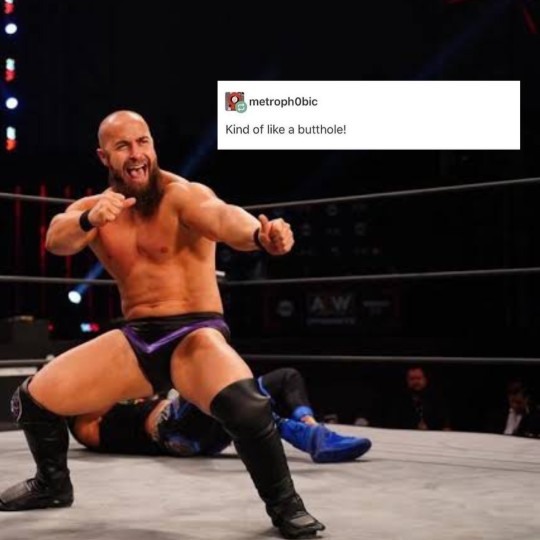

28 notes
·
View notes
Text
whenever a post ab wrestlers doing gay shit breaches containment theres always at least 1 non wrestling fan in the notes like "do wrestling fans know 😏" literally of fucking course we know. r we not looking at the same thing rn ??? thats literally 2 men kissing. get the hell outta here
#its so funny tho. LIKE ..... YEA THATS WHY I WATCH IT. THIS DOES IN FACT HAPPEN A LOT#dylans post tag#text#wrestling
167 notes
·
View notes
Text
if this were any other business, tony khan pretty much admitting to firing anthony henry because he got injured would be the most obvious slam dunk lawsuit in the world
12 notes
·
View notes